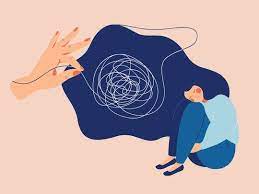Experts Offer Insights Into The Relationship Between Physical And Mental Health
For the longest time, the idea of mental wellness was seen as being foreign. Even in this day and age, society often struggles to understand how closely linked one’s physical and mental health are. But the level of awareness has to rise significantly from where it is right now.
According to Dr. Madhusudan Singh Solanki, Senior Psychiatrist and Director of the Department of Mental Health and Behavioral Sciences at Max Smart Super Speciality Hospital Saket, “Your mental and physical health are now known to be intimately connected, to the extent that neither can function well on its own.
Your emotions and moods have an impact on your physical health. For instance, feeling angry increases your heart rate, blood pressure, and breathing rate, among other changes that happen at hormonal, neuronal, and neuromuscular levels below the level of conscious awareness. Now consider the long-term effects that mental conditions like chronic stress, sadness, or worry might have on your physical health.
He said, “Studies have demonstrated that coexisting depression or anxiety make physical health conditions worse in terms of metrics, treatment response, compliance with therapy, and likelihood of consequences. Depression or anxiety affects 25–45% of people who have heart illness, and it affects 30–35% of those who have gastrointestinal or stomach diseases such celiac disease or Crohn’s disease. 30% of diabetic patients have depression, 50% to 60% of patients with lung conditions like asthma have anxiety or depression under the surface, 30% of stroke patients have depression, 50% of Parkinson’s and Alzheimer’s patients have depression, 40% of HIV patients have depression, and 20–24% of cancer patients have anxiety or depression.
It should be highlighted that untreated mental health problems exacerbate physical ailments and lessen the effectiveness of therapy.
The acknowledgement of Indian culture displays the awareness that the intricate interaction between the body and mind is of highest significance, according to Ms. Sigal Atzmon, Chief Executive Officer and Founder of Medix Global. Yoga and meditation demonstrate a firmly held conviction that taking care of the body and taking care of the spirit are inseparable. When researching meditation in the context of neuroscience, it becomes clear that our brain does have a mechanism for removing unhelpful ideas and restructuring the brain.
“MRI scans demonstrate that the practice of meditation causes wide-ranging changes in the brain, including activation of the emotional and cognitive centers of the brain. The Cochrane research found that yoga might improve the quality of life for those with breast cancer. According to a review research, yoga may enhance sleep quality, mood, and spiritual health while reducing anxiety, despair, exhaustion, and stress.
Ms. Atzmon also discussed how there is a strong link between physical and mental welfare that is highlighted in both scientific studies and Indian culture. The inherent connection between the body and the mind is emphasized in both yoga and meditation techniques. Modern neuroscience has validated this relationship, demonstrating how meditation may improve mental wellness.
According to studies, stress has an impact on a person’s physical and mental health, which may result in the emergence of illnesses including autoimmune disorders and the spread of cancer. Understanding these connections is essential for fostering a holistic vision of health that motivates people to put their whole well-being first, improving both community and individual health.







